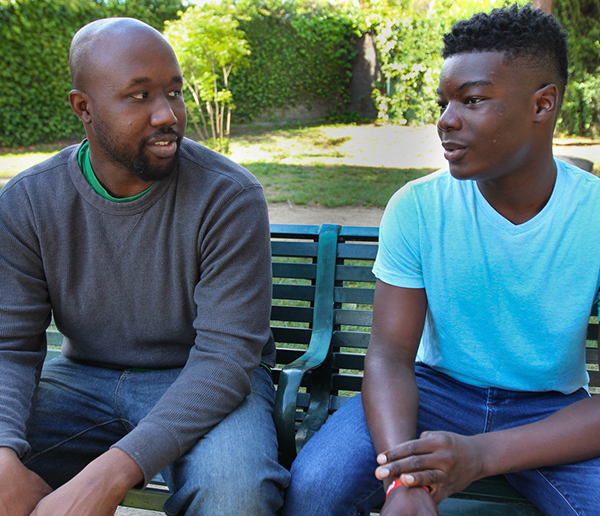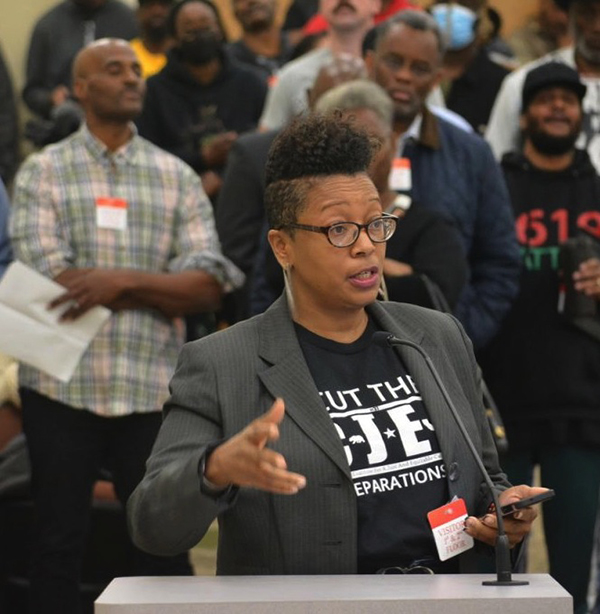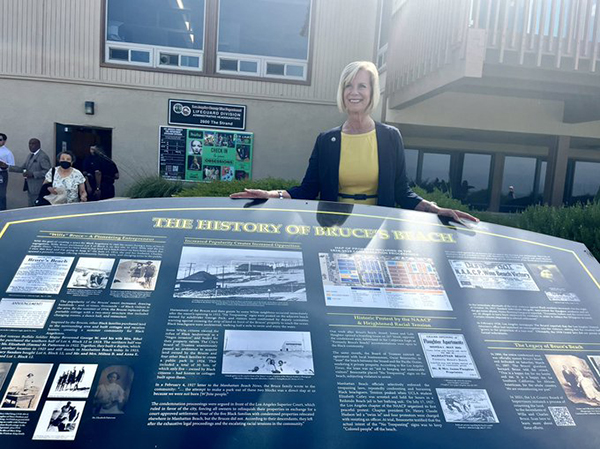By Shirley Hawkins
Contributing Writer
LOS ANGELES — David had a troubled childhood. His parents, who were both addicted to drugs, abandoned him when he was just 2. With no relatives to take him in and searching for the love and sense of belonging he had never received, David soon found himself falling in with the wrong crowd. Before long, he had joined his newfound friends in committing petty thefts.
David’s illegal activities finally caught up with him and he was sentenced to the care of the Probation Child Welfare Division, where kids ages 14 to 21 are placed in foster care due to their troubles with the law.
There are many stories like David’s, a fictional characterization of a wayward youth. David’s path may have continued if not for Forever Friends, a Los Angeles County Probation Department child welfare program that has been in operation for more than 20 years.
Forever Friends partners youth on probation with caring adults who provide them with a strong and loving support system and offer them the guidance, love and affection they need so that they can mature into productive adults. Currently Forever Friends works with 1,000 teenagers throughout Los Angeles County.
“Recruitment efforts for the Forever Friends program have been airing on KJLH radio over a year,” said Lisa Campbell-Motton, the county’s child welfare director for over 20 years. “The response from the public has been tremendous.”
“Most of these kids don’t have an adult in their lives,” said Mark Daley, president of Daley Solutions and a marketer and consultant to the county Probation Department’s child welfare division.
“I provide video media and advertising for the program where we try to find adults interested in enrolling in the program,” Daley said. “We match the youths with a person in the community and it is a friendship that lasts a lifetime.”
“Forever Friends is seeking caring adults that will remain a friend to the youth and be a stable influence in their lives,” Campbell-Motton said. “They are also seeking adults who will take the youths into their homes and become their foster parent.
“We don’t paint a pretty picture in our recruitment efforts,” she added. “The crimes the youths have committed are survival crimes, like stealing to support their life on the street. Some have been homeless and some have been the victims of child trafficking.”
Campbell-Motten said it might take a little time before the adult and child experience a sense of bonding.
“The youths will test you,” she said. “They have had so many people coming in and out of their lives that they assume the adult is only caring for them because they are getting paid. But the Forever Friends program was developed so that caring adults can provide a nurturing and stable relationship for the youth.
“We need people to stick with these youths through thick and thin because they have experienced a great amount of trauma,” Campbell-Motten added. “It takes a long time to break down the barriers and protective walls that the youths have built up. Usually, by the time that the foster parent or the Forever Friend is about to give up on the youth, that’s usually when the Forever Friend or foster parent is on the verge of breaking down those protective walls.”
“Over the past couple years we have seen a tremendous response to our advertising,” Daley said. “The community volunteers register online at ForeverFriendsLA.org.
“They undergo a background check and appropriate training and then are invited to hang out with a group of young people at one of the county’s congregate care facilities,” he added.
“We never try to force a match on the young people. Instead we let the volunteers get to know a few of the youths. Ultimately, the volunteer and a connection with a young person will emerge and they will start spending more time together,” Daley said. “It starts with visits to the facility and spreads over time to hikes, ball games, movies, etc. Our hope is that the young person doesn’t age-out of foster care alone. Youth who age out of foster care are disproportionately represented in our homeless population.
“The Forever Friends are like foster aunts or uncles,” he added. “They help the young people with life skills and teach them such necessities as how to do laundry or balancing a checkbook. They celebrate their victories like graduations or weddings. And most importantly, they let them know they are loved and worthy.”
Shirley Hawkins is a freelance reporter for Wave Newspapers. She can be reached at metropressnews@gmail.com.












